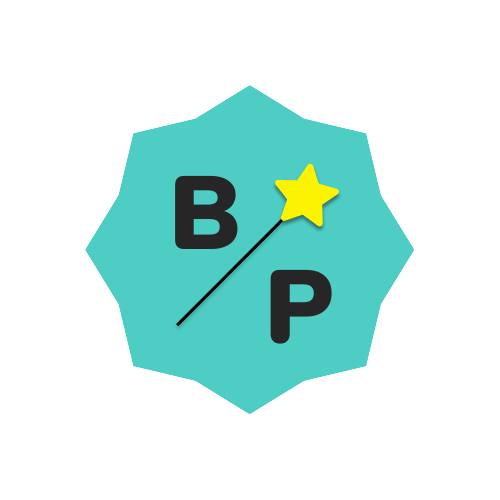OpenAI has significantly upgraded its products, raising the bar for artificial intelligence. These updates were announced at their first OpenAI Dev Day.
These advancements promise to make AI more accessible, versatile, and user-friendly for developers and non-coders alike.
Here’s a short recap of the recent updates and how they’re reshaping the landscape of AI applications.

Updated ChatGPT-4 model: Hi GPT-4 Turbo
The GPT-4 API has received significant enhancements, making it a powerful tool for both programmers and casual users.
With the integration into the ChatGPT web interface, OpenAI has streamlined the experience, providing a more robust interaction model that can now access information up to April 2023. The updated API has a much bigger context window of 128k tokens, which translates to a better grasp of extended conversations.
Resembling the ability to process a book as lengthy as a Harry Potter novel with improved accuracy.
Developer-Focused Upgrades
Developers will find the GPT-4 API more potent, with the newly introduced GPT-4 Turbo, which is not only more accurate but also up to three times more cost-efficient.
This means that applications requiring extensive prompt generations will see significantly lower operational costs.
The Power of Retrieval and Voice Interactivity
One of the most groundbreaking features is the retrieval function, allowing the new assistant to ingest documents like a Nike design manual and become an instant expert on the subject.
With voice input and output, AI assistants will understand guidelines and communicate conversationally, bridging the human-machine gap.
The Introduction of Autonomous Assistants
Remember the ChatGPT Persona Framework a lot of users figured out and used to get much better results than with the classic “Act as a …” method?
Well, It seems that OpenAI was paying attention and made a complete update based on this framework.
The Assistant API marks the beginning of what could become autonomous agents. By allowing users to create assistants with rich contextual understanding and the ability to execute Python code autonomously, OpenAI is paving the way towards more autonomous AI systems that can perform complex tasks without constant human oversight.
GPT Store and Customizable Chatbots
Perhaps the most exciting announcement is the creation of the GPT Store, where users can create, use privately, or sell custom chatbots, termed GPTs.
These GPTs can be tailor-made for specific tasks, imbued with particular knowledge bases, or even trained on unique data sets. The potential for monetization opens up a new frontier for entrepreneurs and data enthusiasts to capitalize on their expertise.
Copyright Shield
This is big!
Copyright Shield is a feature that helps protect users from copyright infringement claims for their AI-generated content.
This initiative is set to revolutionize the way customers experience and engage with their models.
This new security feature protects models from copyright infringement and theft. It utilizes cutting-edge technology to ensure your designs are secure from unauthorized use.
The encryption algorithms and security measures guarantee protection against hacking attempts or data breaches. You can customize permissions and restrictions for collaborative work.
This initiative benefits entrepreneurs, designers, and businesses by allowing them to monetize their creations without fear of theft.
It also offers peace of mind for industries like manufacturing and architecture, where trade secrets are crucial. Overall, this sets a new standard, empowering individuals and businesses to confidently share and monetize their models while fostering creativity and innovation.
The Vision API: Igniting Innovation
The introduction of the Vision API is expected to spark a new wave of creativity and innovation in the AI field.
It’s pretty sick if you ask me.
WebcamGPT:
— Benjamin De Kraker (@BenjaminDEKR) November 7, 2023
Use the new GPT-4 Vision API to actively recognize what's happening in real-time….
This is a live web demo. Try it yourself, link in comments. pic.twitter.com/7kCjEwimXH
ChatGPT updates in real life
Less than 24 hours have passed since the update was released, and we are already witnessing fascinating practical examples. Here are a couple of the most interesting ones.
Rowan Cheung expresses amazement at the GPT Builder for optimizing social media posts and determining the best times for engagement.
Aman Kishore plans to leverage gpt-4-turbo’s extensive context length and ChatGPT’s code interpreter to implement academic papers.
Brett Bauman discusses the novel integration of web browsing with GPTs, using it to curate a Coachella playlist based on the event’s lineup.
Seth Kramer demonstrates a quick creation with the gpt-4-vision API, which suggests optimizations for landing pages based on image analysis.
Marcel Pociot unveils “Roast my Website,” which humorously critiques websites using GPT4 Vision and delivers the commentary in audio form through a text-to-speech API.
ChatGPT was just the beginning.
— Angry Tom (@AngryTomtweets) November 7, 2023
It's only been 14 hours since OpenAI released their new product GPTs
And people are already generating insane results.
Here are 10 of my favorite examples…
Final Thoughts
OpenAI’s updates go beyond mere enhancements. They represent a significant shift towards a more integrated, cohesive, and user-driven AI ecosystem.
The lowered costs, improved functionalities, and new platforms for creation and sharing position OpenAI at the forefront of the AI revolution. As developers and users alike will start using these new tools, we can expect an era where AI’s potential is limited only by our imagination.
The next chapter for OpenAI and its user community is just beginning, and it looks to be a big one.
